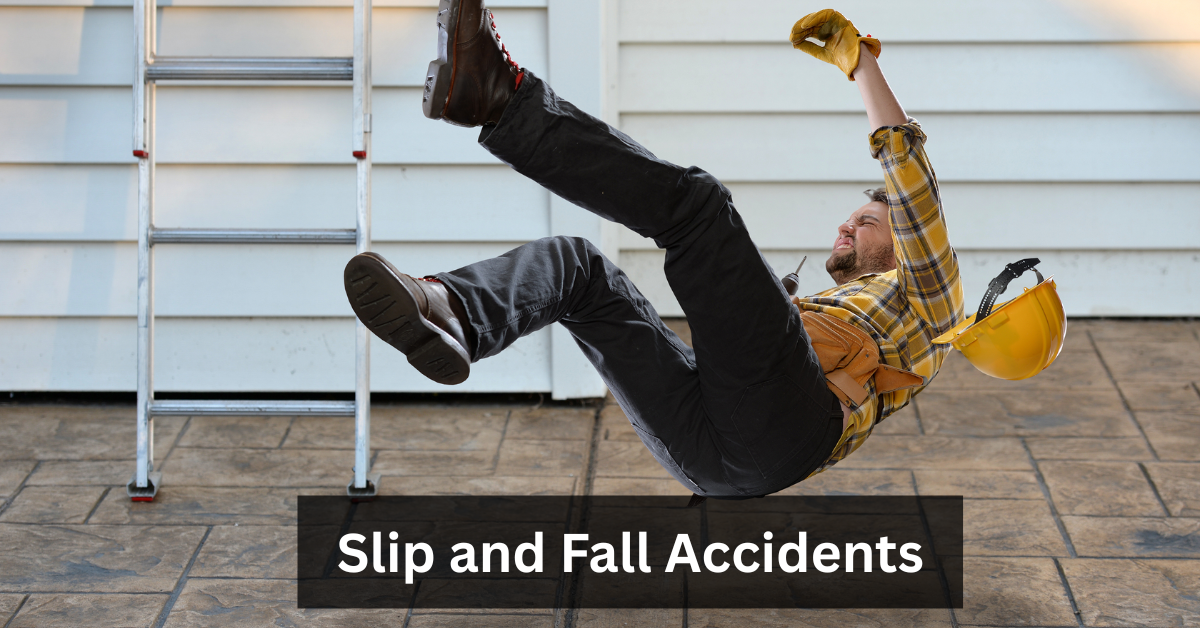Slip and Fall Accidents can happen in an instant, turning a routine grocery trip or walk across a lot into a painful, life-altering ordeal. 4oUnderstanding your rights, the legal landscape, and the steps to take after an accident can empower you to recover fully—physically, emotionally, and financially.
What Qualifies as a Slip and Fall Accident?
A slip and fall accident happens when a person loses their footing and falls due to hazardous conditions on someone else’s property. These are considered premises liability cases under tort law, and the property owner can be held responsible if they failed to maintain safe conditions.
Whether it’s a spill on a tile floor or a cracked sidewalk in front of an apartment complex, the key is proving that the dangerous condition existed and was not addressed in a reasonable timeframe.
Common Causes of Slip and Fall Accidents
Wet Floors
One of the most common causes of slip and fall injury is a wet floor hazard. Water, grease, cleaning agents, or spilled drinks can turn a normal floor into a high-risk surface. Improper signage or failure to clean promptly puts visitors in harm’s way, particularly in retail stores, office buildings, and grocery stores.
Uneven Surfaces
From cracked sidewalks and chipped tiles to uneven flooring accidents, these hazards often appear in parking lots, sidewalks, and apartment complexes. Not only are they difficult to spot, but they also create a significant risk of injury from falling.
Ice and Snow
In colder climates, ice and snow slip risks are real and deadly. Even in places like Arkansas, where winter storms can hit unexpectedly, failure to clear ice from walkways can make property owners liable. While the law may vary by state, the CDC and premises liability law expect a reasonable duty of care.
Poor Lighting
Dim hallways and poorly lit staircases are silent culprits of poor lighting accidents. The risk intensifies in nursing homes, parking garages, and multi-unit dwellings, where failing to install or maintain lighting leads to unseen hazards and more severe injuries.
Clutter and Obstacles
Falling over extension cords, boxes, or misplaced merchandise is more common than you’d think. These types of accidents typically occur in workplaces, retail stores, and warehouse environments, where cluttered paths violate OSHA guidelines and ADA accessibility standards.
Typical Injuries Resulting from Slip and Fall Accidents
Slip and fall accidents may seem minor, but the injuries they cause can be devastating. Victims often suffer:
- Fractures (especially hips, wrists, and ankles)
- Spinal injuries
- Traumatic brain injuries
- Facial damage or disfigurement
These injuries not only lead to fall-related medical bills, but also long-term rehabilitation and loss of income.
Who Is Liable in a Slip and Fall Accident?
Liability for fall injuries typically falls on the property owner, though managers, landlords, or even government entities may be involved. In legal terms, the injured party (the plaintiff) must show that the defendant had a duty of care, breached that duty, and caused the injury.
If the hazardous condition was known—or should have been known—the responsible party may be legally accountable.
Understanding Premises Liability
Premises liability is the legal foundation for slip and fall claims. This branch of tort law holds that owners must maintain their properties in a safe condition. If a hazard is ignored or not fixed within a reasonable time, and it causes an injury, the victim may be entitled to compensation.
Documenting Your Slip and Fall Injury
Thorough documentation supports your claim. Keep track of:
- Medical records and appointments
- Bills and expenses related to treatment
- Photos of injuries and the accident scene
- Journal entries of pain and recovery
These records help your fall injury attorney establish the severity of the injury and the impact on your life.
Filing a Slip and Fall Injury Claim
To pursue slip and fall compensation, your attorney will file a personal injury claim with the insurance company of the liable party. This typically includes:
- A demand letter outlining damages
- Submission of evidence
- Negotiation of a settlement
If the case doesn’t settle, your slip-and-fall lawyer may take the case to court.
What Is the Average Settlement for Slip and Fall Accidents?
Settlements vary, but most victims can expect compensation for:
- Medical expenses
- Lost wages
- Pain and suffering
- Future medical needs
On average, settlements can range from $10,000 to $50,000, though severe cases often exceed six figures.
Factors That Affect Compensation Amounts
Several factors influence the payout:
- Severity of the injury
- Degree of negligence
- Presence of building code violations
- Loss of ability to work
- Quality of legal counsel
Working with an experienced Little Rock slip and fall accident lawyer dramatically improves your chances of receiving full compensation.
Statute of Limitations for Filing Slip and Fall Lawsuits
Each state has a statute of limitations—a legal time limit for filing a claim. In Arkansas, victims generally have three years from the date of the accident to file a lawsuit. Waiting too long may result in losing your legal rights permanently.
How a Slip and Fall Lawyer Can Help
A slip and fall lawyer does more than file paperwork. They:
- Investigate the accident
- Negotiate with insurance companies
- Represent you in court
- Ensure your legal rights are protected
Choose a reputable fall injury attorney with a strong local presence, such as a Little Rock slip and fall accident lawyer, for the best results.
Preventing Slip and Fall Accidents: Property Owner Tips
Property owners can reduce risk and liability by:
- Performing regular safety checks
- Using signage for wet floors
- Keeping walkways clutter-free
- Maintaining lighting systems
- Fixing flooring issues promptly
Following OSHA and ADA guidelines not only prevents injuries but also strengthens the defense against lawsuits.
Slip and Fall Accidents in the Workplace
Workplace accidents are governed by both OSHA regulations and workers’ compensation laws. Employers must:
- Provide safe walking surfaces
- Train employees on hazard reporting
- Address spills and debris immediately
Employees injured at work should report the incident and consult a personal injury attorney for guidance.
Slip and Fall Accidents in Public Places
Government buildings, city parks, and public sidewalks are also common places for accidents. Filing a slip and fall claim against a government entity involves unique rules and tight deadlines, often requiring:
- Special notice forms
- Faster filing timelines
- Evidence of gross negligence
Consult legal counsel immediately if your accident occurred in a public space.
Slip and Fall Claims Against Government Entities
Claims involving the city or state are more complex. Most states have sovereign immunity laws, but exceptions exist under conditions of gross negligence. A Little Rock slip and fall accident lawyer can help navigate these challenging cases.
Conclusion
If you’ve suffered a slip and fall injury, you don’t have to face the aftermath alone. With the right steps, solid documentation, and the support of a seasoned slip and fall lawyer, you can hold negligent parties accountable and secure the slip and fall compensation you deserve.
Don’t delay—contact a Little Rock slip and fall accident lawyer today to protect your rights and explore your options. Every step you take now brings you closer to justice, recovery, and peace of mind.
Frequently Asked Questions
How long do I have to file a slip and fall lawsuit?
Usually, two to three years, depending on the state.
Can I still sue if I was partly at fault?
Yes. Many states follow comparative negligence laws, which reduce your compensation but don’t eliminate it.
What if I didn’t report the accident right away?
You can still file a claim, but delays hurt credibility. Immediate reporting is always best.
How much does a slip-and-fall lawyer cost?
Most work on a contingency basis, meaning they only get paid if you win.
Can I get compensation without going to court?
Yes. Most slip and fall claims settle out of court, especially with strong evidence.
Stay in touch to get more updates & alerts on Erome! Thank you



